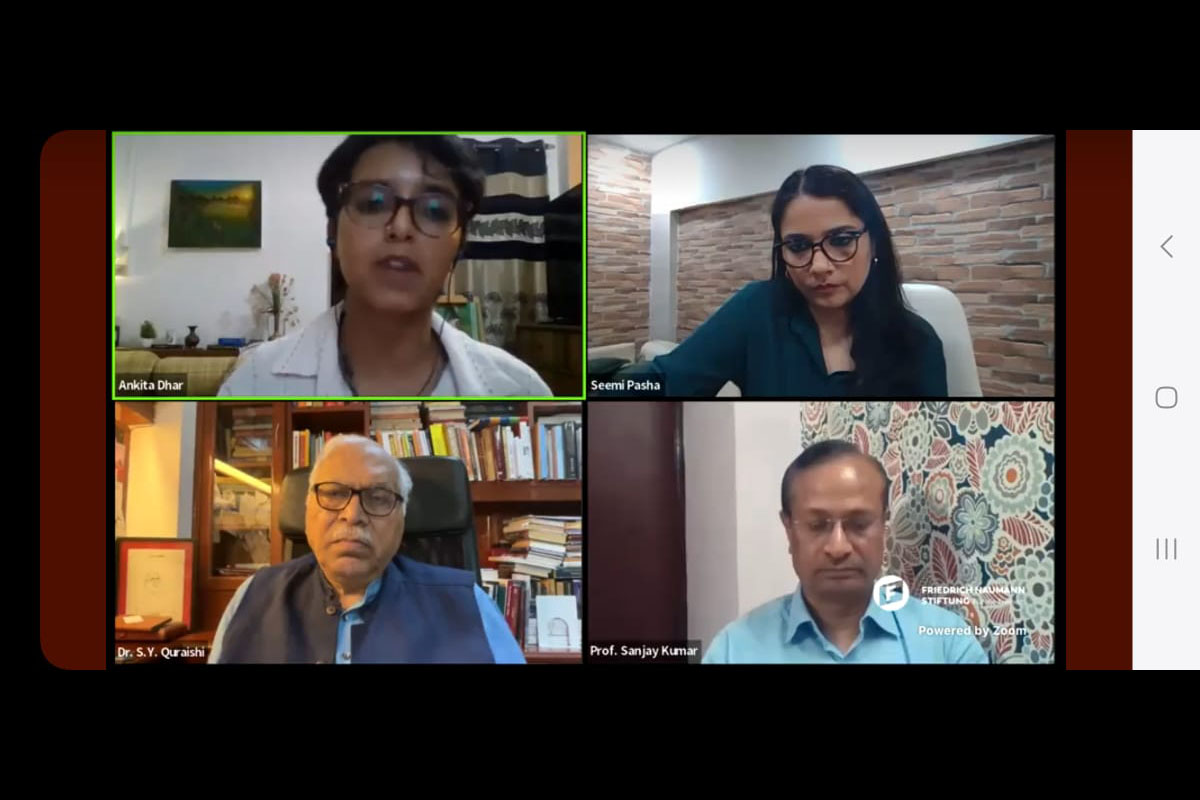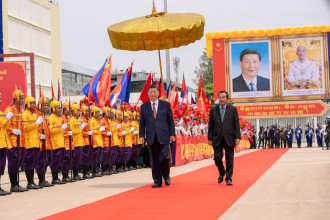
KATHMANDU: As India was preparing for the 2024 General Elections, the Friedrich Naumann Foundation for Freedom South Asia hosted a webinar titled 'India Votes: Inclusive Democracy 2024' on April 16. The webinar centred on the electoral process, the participation of women and youth, and considerations for minorities, including people with disabilities, aiming to provide a comprehensive understanding of India's democratic processes.
This webinar was organised in partnership with Seeking Modern Applications for Real Transformation (SMART). The event commenced with a brief overview of the programme by Himanshu Chawla, the Regional Communication and Program Manager of FNF South Asia.
During the welcome address, Archana Kapoor, Founder and Director of SMART, shared her perspective that a thriving and just society lies at the heart of inclusive democracy. She noted that India, being the world's largest democracy, ensures that every individual, regardless of their background or identity, has an equal voice and can express their views. Kapoor highlighted that elections, which impact our lives for five years and potentially many more, are of utmost importance. She expressed her hope for more transparent and accountable elections this year to preserve the country's vibrant democracy.
The session was moderated by Seemi Pasha, an experienced journalist and filmmaker from New Delhi, who has anchored news and reported on politics, society, and gender with notable roles at CNN-IBN and India Today Television.
Dr S Y Quraishi, Former Chief Election Commissioner, discussed the major challenges that the Election Commission faces during elections. He pointed out the sheer magnitude and scale of the task, given that one billion voters are involved, and the EC's responsibility to ensure that no voter is excluded. He identified accessibility for everyone as one of the biggest challenges. Most importantly, Dr Quraishi emphasised the constant endeavour of the Election Commission to keep the election free, fair, credible, safe, and free of hate speech.
In response to a query from the moderator about how Lokniti determines which party is leading in which community and what issues are relevant to them, Professor Sanjay Kumar, Co-Director at Lokniti, explained that their large-scale survey is a randomised sample. He clarified that they do not target specific communities of people and that their investigators do not seek out specific types of individuals in the field.
Prof Kumar also clarified that they do not have different sets of questions for different voters; it is a standard questionnaire for all. He explained that they only segregate the data during analysis, as they also consider the background variables of the voters. Prof Kumar added that they examine the concerns of the various types of voters they have interviewed and have found that the concerns of the voters are not markedly different.
He stated that there are generally not many significant variations in the concerns of the voters, whether they are young or old, men or women, living in rural India or urban India. The primary consideration for the Indian voter is the party, he revealed, noting that 65% of Indian voters vote for the party. He shared that they don't even consider the candidate, and many don't even know the name of the candidate.
In response to Pasha's query about whether the lack of priority given to voter ID and voting itself for certain communities is the reason why a large percentage doesn't vote, Ankita Dhar Karmakar, a multimedia journalist at BehanBox, shared that 30% of the electorate did not vote in 2019. She mentioned that they then investigated certain sections of the community, mostly marginalised sections, including trans people within the LGBTQIA+ community, migrant voters, student voters, women, and young women voters. They found that accessibility was a more significant problem than voter awareness.
Karmakar emphasised that accessibility is the issue deterring people from voting. She stated that in India, there are 450 million internal migrants, according to the 2011 Census data, and this figure is expected to be much higher in 2024. For these migrant workers, she stated, there are no feasible means for them to vote. She questioned what happens to that section of the electorate who cannot cast their votes because they are informal workers or seasonally employed. Similarly, for transgender people within the LGBTQIA+ community, the problem is that if they want to vote in their preferred gender, their voter IDs need to reflect their preferred gender.
She said the voter ID needs to reflect their preferred name, and for that to happen, they need to have a TG card or an identity card which affirms their gender identity. However, there is a bureaucratic process involved, and it is difficult for them to get a TG card. When they do not have a TG card, how do they apply for a voter ID with their updated gender, she queried. Hence, this is one example of how one section of people who want to vote gets left out.
Meanwhile, Dr Quraishi stated that the Election Commission is very concerned about such issues and has set up a voter education division, but there is a lot of disinformation and misinformation. He recalled an incident when he was with the Election Commission where a representative from the transgender community approached the commission, citing they could not vote because the voting form only mentioned the male and female genders. Dr Quraishi stated it took him only 30 seconds to decide to create a third gender in the form, and they were allowed to vote, which the transgender community celebrated.
At the end of the webinar, when asked to speak about his Indian experience and observations about Indian democracy, Dr Carsten Klein, Regional Head, FNF South Asia, said he feels extremely honoured as a convinced democrat to be a part of and a guest in the country during this extremely interesting process of elections in India. He believes this interest is reflected by many people around the world because India is a positive role model for many democratic states and other states that are still in the process of learning about democracies and the processes behind them.






